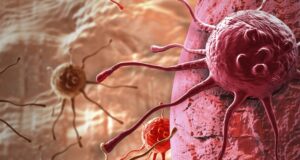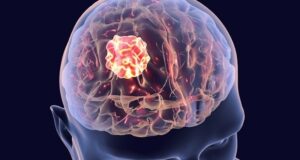
Today, the Mount Sinai Health System, one of New York City’s largest academic medical systems, announced the opening of the Hamilton and Amabel James Center for Artificial Intelligence and Human Health, which is dedicated to enhancing health care delivery through the research, development, and application of innovative artificial intelligence (AI) tools and technologies.
The state-of-the-art research center solidifies Mount Sinai Health System’s leadership in delivering patient care through groundbreaking innovation and technology. As one example, Mount Sinai was among the first academic medical centers in the United States to build and operate a supercomputer, named “Minerva,” which went into service in 2013.
The interdisciplinary center will combine artificial intelligence with data science and genomics in a location at the center of the campus of The Mount Sinai Hospital in Manhattan. The facility will initially house approximately 40 Principal Investigators, alongside 250 graduate students, postdoctoral fellows, computer scientists, and support staff.
Supported by a generous gift from Hamilton Evans “Tony” James, Executive Vice Chairman of the Manhattan-based investment firm Blackstone, and his wife, Amabel, the 12-story, 65,000-square-foot facility will be housed in a repurposed Mount Sinai building at 3 East 101st Street.
“By integrating AI technology across genomics, imaging, pathology, electronic health records, and beyond, Mount Sinai is revolutionizing doctors’ capacity to diagnose and treat patients, reshaping the future of health care. Mount Sinai has been at the forefront of AI research and development in health care, and now we stand as one of the first medical schools to establish a dedicated AI research center,” says Eric J. Nestler, MD, PhD, Director of the Friedman Brain Institute, Dean for Academic and Scientific Affairs and Nash Family Professor in the Nash Family Department of Neuroscience at Icahn School of Medicine at Mount Sinai and Chief Scientific Officer at Mount Sinai Health System. “As AI technology is evolving rapidly, this moment is critical for maintaining leadership in digital health. The Hamilton and Amabel James Center for Artificial Intelligence and Human Health will cultivate an optimal environment for researchers to deepen their understanding, diagnosis, and treatment of human diseases-;including the most debilitating-;and to advance overall health and well-being.”
If we want to use artificial intelligence for the greater good and make significant progress in health care, investing in AI research and development within academic institutions is essential. While large tech companies possess substantial funding and resources to access high-performance equipment, they lack access to a health care system, limiting their progress in the field. This new AI research center at Icahn Mount Sinai will yield transformative discoveries in human health by the integration of research and data, fostering collaboration across multiple programs under one roof.”
Dennis S. Charney, MD, Anne and Joel Ehrenkranz Dean at Icahn Mount Sinai and President for Academic Affairs of the Mount Sinai Health System
To construct the new AI center, Mount Sinai modernized an existing building to meet contemporary standards, including updating the facade to align with the aesthetic of other campus buildings. Within the 12 floors of the center, eight will be dedicated to Mount Sinai’s AI initiatives. These core facilities include:
- The Windreich Department of AI and Human Health, which focuses on creating an “AI Fabric” that will integrate machine learning and AI-driven decision-making throughout the Health System’s eight hospitals.
- The Hasso Plattner Institute for Digital Health at Mount Sinai (HPI•MS), formed in 2019 through a collaboration with the Hasso Plattner Institute for Digital Engineering in Germany, which aims to enhance capabilities in data science, biomedical and digital engineering, machine learning, AI, and wearable technology. In 2024, the Hasso Plattner Foundation renewed its generous support of HPI•MS for the next five years.
- The Institute for Genomic Health and Division of Medical Genetics, which leads the effort to harness the power of genomic discovery to develop new ways to prevent and treat diseases, including cancers, heart problems, and genetic disorders.
- The Biomedical Engineering and Imaging Institute, focused on the use of multimodality imaging for brain, heart, and cancer research, along with research in nanomedicine for precision imaging and drug delivery.
- The Institute for Personalized Medicine, which launched the human genome sequencing research project called the Mount Sinai Million Health Discoveries Program, which aims to enroll 1 million racially and ethnically diverse patients, advance precision medicine research, and improve patient care.
Source:




